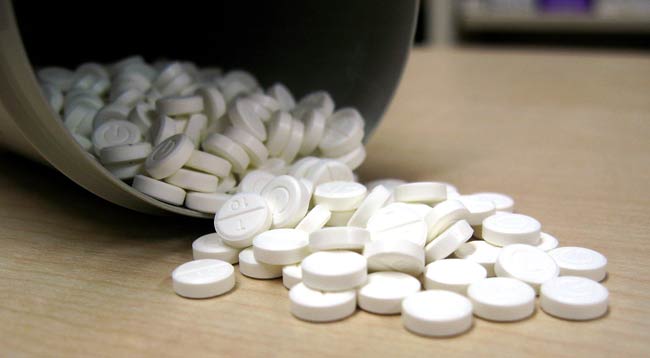
From criticism of the Sackler family who owns the Oxycontin manufacturing Purdue Pharma, to government agency lawsuits, and the lackluster federal response, NPQ has covered the gamut of the opioid crisis. Throughout this coverage what remains clear is a gamut of failures that has led to an opioid epidemic that has claimed over 200,000 deaths so far. Meanwhile, pharmaceutical companies and distributors continue to try to shift blame, while government agencies and nonprofits are left to pick up the pieces.
Fingers have been pointed at physicians, manufacturers, and pharmacists, but distributors are also coming under fire. A colossal “pill dumping” case out of West Virginia has shed light onto companies who distribute opioids such as hydrocodone and oxycodone. The distributors appear to exhibit, at best, an amazing lack of oversight that has helped West Virginia’s rate of opioid overdose deaths to soar until it is among the highest in the country. According to the federal Centers for Disease Control and Prevention, West Virginia suffered 52 deaths per 100,000 for drug overdoses in 2016, more than twice as a high as the national average—itself a record—of 19.8 deaths per 100,000.
Recently, executives from the wholesale pharmaceutical distributing companies McKesson, Cardinal Health, AmerisourceBergen, and Miami-Luken were summoned to testify in front of the House Energy and Commerce Committee to discuss their roles in the epidemic. These distributors stand accused of skirting Drug Enforcement Agency suspicious activity reporting requirements, resulting in the distribution of millions of pills. These reporting requirements explicitly state: “The registrant shall inform the Field Division Office of the Administration in his area of suspicious orders when discovered by the registrant. Suspicious orders include orders of unusual size, orders deviating substantially from a normal pattern, and orders of unusual frequency.”
Aside from their obvious failure to exercise common-sense judgment and their ethical responsibility to exercise care and keep narcotics out of non-prescribers’ hands, pharmaceutical distributors have a clear legal responsibility to alert the DEA of suspicious orders, such as the sale of 39,000 pills in the span of two days to two West Virginia pharmacies within walking distance of each other.
Sign up for our free newsletters
Subscribe to NPQ's newsletters to have our top stories delivered directly to your inbox.
By signing up, you agree to our privacy policy and terms of use, and to receive messages from NPQ and our partners.
At the hearings, one executive, Joseph Mastandrea, chairman of Miami-Luken, responded “yes” when committee chair Rep. Gregg Harper (R-Miss.), asked if he believed that his company had contributed to the widespread opioid problem.
The other four executives denied that their companies had any role in the opioid epidemic. Gregory Barrett, chairman of Cardinal Health, at least tried to sound contrite: “With the benefit of hindsight, I wish we had moved faster … I am deeply sorry we did not. Today, I am confident we would reach different conclusions about those two pharmacies.”
A Pulitzer-winning piece of investigative journalism by Eric Eyre shows that pill dumping in West Virginia goes beyond suspicious activity to downright negligence on the part of distributors. Eyre’s research found that “AmerisourceBergen, the nation’s third largest drug distributor, shipped 60.9 million hydrocodone pills and 26.6 million oxycodone tablets to West Virginia. That’s 33 hydrocodone pills and 15.5 oxycodone pills for every man, woman and child in West Virginia.” The article goes on to detail the sheer number of pills distributed by different companies to mom-and-pop pharmacies in West Virginia, driving home the point that the number of pills distributed to this region was far greater than the amount that could be reasonably consumed if used as prescribed.
Delegate Don Perdue of West Virginia said, “The distribution of vast amounts of narcotic medications to some of the smallest towns and unincorporated rural areas of our state should have set off more red flags than a school of sharks at a crowded beach.”
Echoing this sentiment, Michigan Representative Tim Walberg said, “The sheer number of opioids dumped into small towns is just baffling and simply incomprehensible.” In other words, the companies distributing hydrocodone and oxycodone to the region almost certainly had to know what they were doing. In fact, distributors Cardinal Health and McKesson continued to dump pills into West Virginia despite getting slapped with fines of $30 million and $13.2 million, respectively, as far back as 2008. It would certainly appear that these distributors recognized suspicious orders and blatantly disregarded federal reporting requirements to chase down huge profits.—Sheela Nimishakavi













